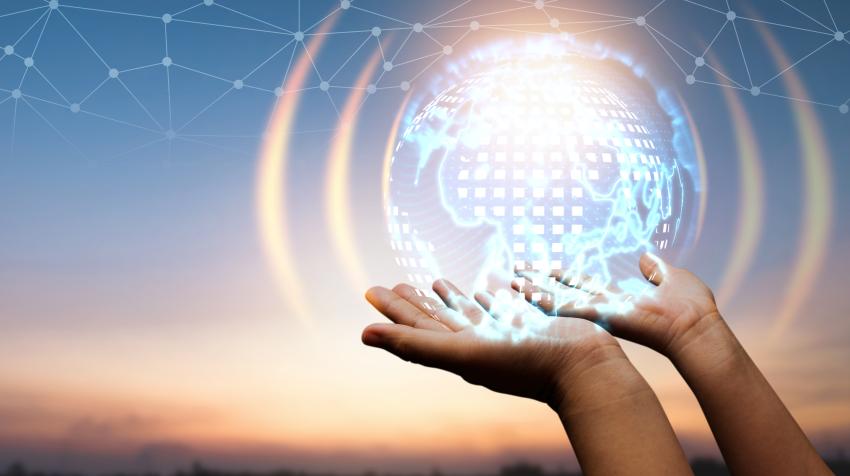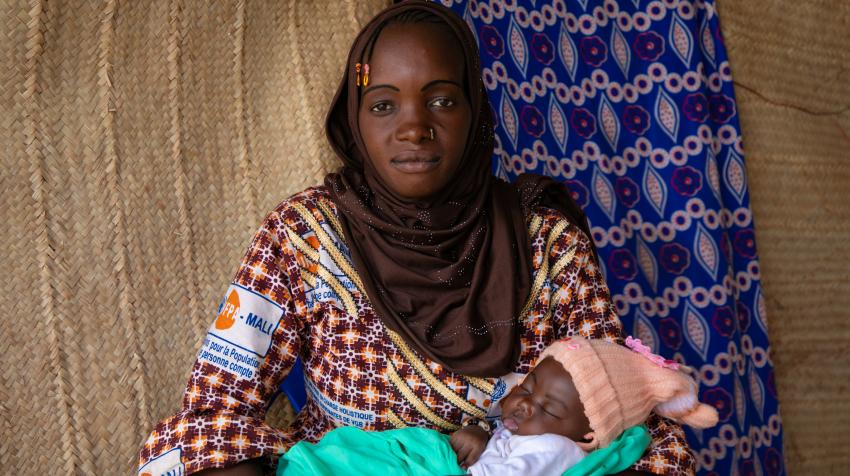December 2012, No. 4 Vol. XLIX, Delivering Justice
We have made great strides in reducing poverty and enabling human development. Ever since poverty trends began to be monitored, the number of people living in extreme poverty and poverty rates declined in every developing region, including in sub-Saharan Africa. The global poverty rate at $1.25 a day declined in 2010 by less than half the 1990 rate. The first target of the Millennium Development Goals (MDGs)—halving the extreme poverty rate to its 1990 level—will have been achieved at the global level well before 2015.1
Yet, while overall poverty has been reduced, we face considerable challenges in human development today, largely shaped by growing inequalities within countries.2 Bad governance, poor health, low quality in education, the impact of climate change and environmental degradation continue to be the catalysts for universal poverty. As United Nations Secretary-General Ban Ki-moon has stated: "Poverty is not simply the lack of material goods and opportunities such as employment, ownership of productive assets and savings. It is also the lack of intangible assets and social goods, such as legal identity, good health, physical integrity, freedom from fear and violence, organizational capacity, the ability to exert political influence, and the ability to claim rights and live in respect and dignity."3
With its emphasis on social justice and equity, the legal empowerment of the poor addresses structural causes of poverty and exclusion, and could thus be central in tackling these interlinked challenges. As the process to formulate the post-MDG development agenda is now in full swing, it is a good time to reflect on the challenges to the legal empowerment of the poor as critical to the rule of law in development. Indeed, in the recent Declaration of the High-level Meeting of the General Assembly on the Rule of Law at the National and International Levels, Member States recognized "that the rule of law and development are strongly interrelated and mutually reinforcing" and "that this interrelationship should be considered in the post-2015 international development agenda".4
CURRENT DEVELOPMENT TRENDS
Despite gains related to the MDGs, the poor and the marginalized continue to be plagued by severe obstacles to their empowerment and human development. For example, vulnerable employment has decreased only marginally over 20 years, hunger remains a global challenge, and the number of people living in slums continues to grow.5 For the many urban poor and marginalized, their lives and livelihoods are guided by informal systems of economy, employment, housing and often violent social control that do not allow them to utilize existing legal frameworks to protect their assets, homes, businesses or personal security, or to access the basic services and social protection to which they are entitled.
The rural poor and marginalized whose livelihoods and welfare are most closely linked to natural resources and management will, therefore, bear the greatest social costs of unsustainable environmental practices. They are also more vulnerable to natural disasters and to the impact of climate change, and bear the immediate burden when ecological resources and services deteriorate. In Mexico, the women in Mayan coastal communities in Yucatan and the Tarahumaras in the Chihuahua deserts are among the most vulnerable people in the country—vulnerable to climate, to crises and to shocks. This vulnerability is comparable to that of the tribes that live in the Chittagong Hill Tracts in Bangladesh thousands of miles away, and suffer from the same historical poverty, human underdevelopment and climate vulnerability. In Chihuahua and in Chittagong, they suffer from inequality before the law: lack of knowledge, lack of access, lack of empowerment and, as a result, have little trust in the State.
These trends are as prevalent today as in 2008 when the Report of the Commission on the Legal Empowerment of the Poor (CLEP) and its co-chairs, Madeleine Albright and Hernando de Soto, placed the concept of legal empowerment of the poor squarely on the development map. CLEP argued that 4 billion people worldwide were excluded from the rule of law, and were thus unable to properly protect and utilize their resources. Vulnerability based on gender, minority or other marginalized status further contributed to the deprivation of rights and the denial to participate on equal terms.6
Legal disempowerment leads to vulnerability and corruption. The United Nations Development Programme (UNDP) has partnered with UN Women and the Huairou Commission to build the knowledge based on the impact of corruption on women, the strategies adopted by them to combat corruption and to increase the accountability and transparency of governments. The study, "Seeing Beyond the State: Grassroots Women's Perspectives on Corruption", found that women experience corruption in basic services such as health and education from a very young age. They especially suffer abuse when accessing or applying for public documentation, such as identity cards, certificates, property documents and licences, and when dealing with law enforcement agencies. The police are generally not friendly towards poor women as well. As development practitioners, it is important to analyse the lack of legal empowerment in people's daily lives. This is why we ask for particular attention to the collateral misery that attacks women while accessing public services: sexual exploitation, harassment and physical abuse.
WHAT IS LEGAL EMPOWERMENT?
CLEP's report describes legal empowerment as "a process of systemic change through which the poor and excluded become able to use the law, the legal system, and legal services to protect and advance their rights and interests as citizens".7 The foundation is the rule of law and access to justice, understood broadly as a basic public service and better justice outcomes. At its core, legal empowerment seeks to protect the basic rights that enable poor people and marginalized groups, such as women, to fully realize their social and economic potential and improve their livelihoods, recognizing the importance and potential of the informal sector.
The focus is ensuring legal identity and literacy or awareness as a gateway to access and participation; identifying and removing legal and institutional bottlenecks constraining the poor and marginalized from accessing and exercising legal rights to improve their lives and livelihoods; and the effective implementation of decent laws. Legal implementation is crucial for translating law reform into poverty alleviation and to prevent the abuse of legal rights by stronger parties to the detriment of the poor and marginalized.
Legal empowerment is a multifaceted field, which assists in addressing a range of development outcomes related to basic services such as health, education, livelihoods, and acquisition of a remedy or entitlement, social inclusion and legal status, peaceful dispute or conflict resolution and environmental sustainability. There is an increasing body of evidence on the impact of legal empowerment. Nonetheless, it is often difficult to envision legal empowerment. A range of examples of impact:8
- Parents learn how to register the births of their children, ensuring their access to education and other services later in life. Civil registration systems are improved.
- The urban poor and their allies lobby for reform of housing laws that provide them with greater security of tenure, enabling them to seek or retain nearby jobs, upgrade the physical infrastructure of their communities and otherwise improve their lives.
- Paralegals (laypersons, often drawn from the groups they serve, who receive specialized legal training and who provide various forms of legal education, advice and assistance) help their fellow farmers employ tenurial laws and regulations to gain greater control of their land. This helps to increase their incomes and provides them with sustained economic security.
- A grass-roots organization working with traditional justice systems helps women protect their inheritance, land and other property rights against those in the community who otherwise would capitalize on their ignorance or powerlessness.
- A government public health programme enables impoverished beneficiaries to understand and act on their legal rights to basic medical services, thereby reducing infant mortality.
- Market vendors negotiate the right to operate legally and free of police harassment in order to protect their livelihoods. Police conduct is improved.
THE POST-2015 AGENDA
The MDGs have been successful on many levels, as they could be understood by all and be implemented universally. They have become the development horizon for 140 governments in the South and the coherent cooperation agenda for another 50 governments in the North. Clear, quantifiable and time-bound goals and targets were at the core of this success. Progress can be measured and compared.
However, some developmental challenges were not included at the time, and new challenges have arisen. From a UNDP perspective, we have certainly learned from the MDGs that in order for development to be effective, inclusive and effective governance values, systems and institutions are needed.
In the process of coming up with an actionable agenda, it will thus be important to establish which facets of the rule of law are most critical to the poor and marginalized to make progress for human development and which can be adequately measured. In this regard, using a legal empowerment lens can be helpful.
George Soros and Sir Fazle Abed argue that legal identity and birth registration are universal rights which should be included in the next development agenda, as they are key to the enjoyment of many development goals including education, health and access to employment.9 Such a target has global resonance: indigenous peoples in developing countries and the Roma people in developed nations share the lowest proportion of financial inclusion and legal empowerment in their respective societies. Concrete suggestions like the one championed by Soros and Abed can help to clearly put forward the legal dimensions of development in the post-2015 process.
Notes
1 United Nations, Millennium Development Goals Report 2012, Overview, p. 4.
2 See "Sustainability and Equity: A Better Future for All", Human Development Report 2011.
3 Report of the Secretary-General, "Legal empowerment of the poor and the eradication of poverty" (A/64/133), 13 July 2009, para. 7.
4 "Declaration of the High-level Meeting of the sixty-seventh session of the General Assembly on the Rule of Law at the National and International Levels" (A/67/L.1), para. 7.
5 Millennium Development Goals Report 2012, Overview, p. 5.
6 Commission on Legal Empowerment of the Poor, Making the Law Work for Everyone (Vol. I), Report of the Commission on Legal Empowerment of the Poor (New Jersey, United States: Toppan Printing Company America Inc., 2008), p. 2.
7 Ibid., p. 3.
8 See "Legal Empowerment: Substantive Report and Guidance Tool Prepared for the United Nations Development Programme", Stephen Golub (2010).
9 Financial Times, "Opinion: Rule of law can rid the world of poverty", George Soros and Fazle Hasan Abed, 26 September 2012.
The UN Chronicle is not an official record. It is privileged to host senior United Nations officials as well as distinguished contributors from outside the United Nations system whose views are not necessarily those of the United Nations. Similarly, the boundaries and names shown, and the designations used, in maps or articles do not necessarily imply endorsement or acceptance by the United Nations.




